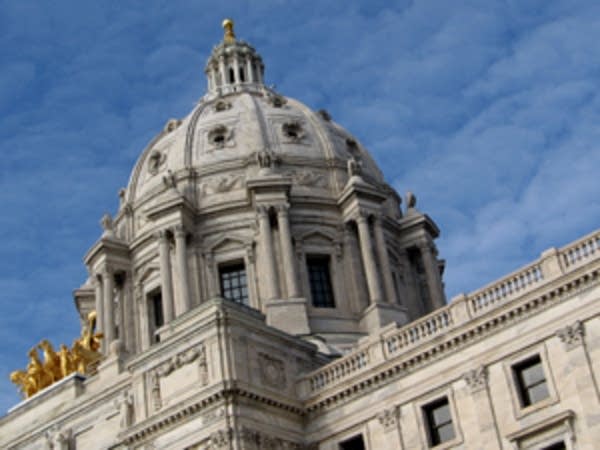Special interests lining up for state spending
Go Deeper.
Create an account or log in to save stories.
Like this?
Thanks for liking this story! We have added it to a list of your favorite stories.

With the 2015 legislative session about to start, Minnesota lawmakers are hearing ideas for spending a projected $1 billion budget surplus.
The cushion barely covers inflation on current spending obligations. But that hasn't stopped special interest groups and government leaders from adding to a growing list of funding requests:
• True to their name, organizers of the 5 Percent Campaign are back seeking a 5 percent funding increase in each of the next two years for programs that serve senior citizens and people with disabilities. Bruce Nelson, a spokesman for the campaign, said the request totals $150 million over the two-year budget cycle.
"This is a hugely important issue of our times," he said, "to make sure that we have adequate and quality care for our most vulnerable citizens."
Turn Up Your Support
MPR News helps you turn down the noise and build shared understanding. Turn up your support for this public resource and keep trusted journalism accessible to all.
The 5 percent effort already has growing bipartisan support. The campaign succeeded in getting such an increase last year, even though it wasn't a budget session.
• Supporters of early childhood education scholarships appear to have DFL Gov. Mark Dayton's support for increased funding. Dayton won't release specifics of his two-year budget proposal until Jan. 27, but he's already said the scholarships are among his priorities. It's unclear whether he'll include the full $300 million that supporters want over the next two years.
Frank Forsberg, of the coalition called MinneMinds, said the increase would provide early learning scholarships to an additional 20,000 low-income children. Forsberg said he knows the request will have to compete with other important needs.
"What we're currently doing as a coalition is expressing to the Legislature to the best of our ability what we think the gap and the need is," Forsberg said. "And then we will of course adjust strategy as we get deeper into the Legislative session."
• The campaign called Homes for All is seeking $39 million for programs that address affordable housing and homelessness. Kenza Hadj-Moussa, a spokeswoman for the Minnesota Coalition for the Homeless, said it's a reasonable request.
"Two years ago during the last budget year, there was a $33 million boost for housing and homeless services," she said. "That was good, but it wasn't given enough, given the need around the entire state."
The list goes on.
• The Coalition of Greater Minnesota Cities is calling for a $45.5 million increase in local government aid.
• Broadband supporters want another installment on a $200 million plan to expand high-speed Internet service to rural areas of the state.
• The University of Minnesota wants a nearly $130 million increase, with about half of that aimed at a tuition freeze.
• Education groups are also making their traditional push for more school funding. The Association of Metropolitan School Districts, for example, wants a 4 percent increase in the basic per-pupil funding formula in each of the next two years.
The funding requests are also coming from within state government, including the judicial branch.
• Chief Justice Lorie Gildea of the Minnesota Supreme Court is asking legislators to approve an additional $45 million for the court system, a 7.5 percent increase over current spending. Gildea said the money is needed to increase salaries for employees and judges.
"We went through a five-year hard salary freeze for our staff," she said. "As a result, our staff are now far behind the salaries ... that other public sector employers are paying. We're very concerned about the impact that's having on our ability to attract and retain the best and the brightest."
Gildea, who describes herself as the lobbyist-in-chief of the judicial branch, said she has already met with several legislative leaders about the budget request. She said she'll go wherever two or more lawmakers are gathered to continue making her case.



